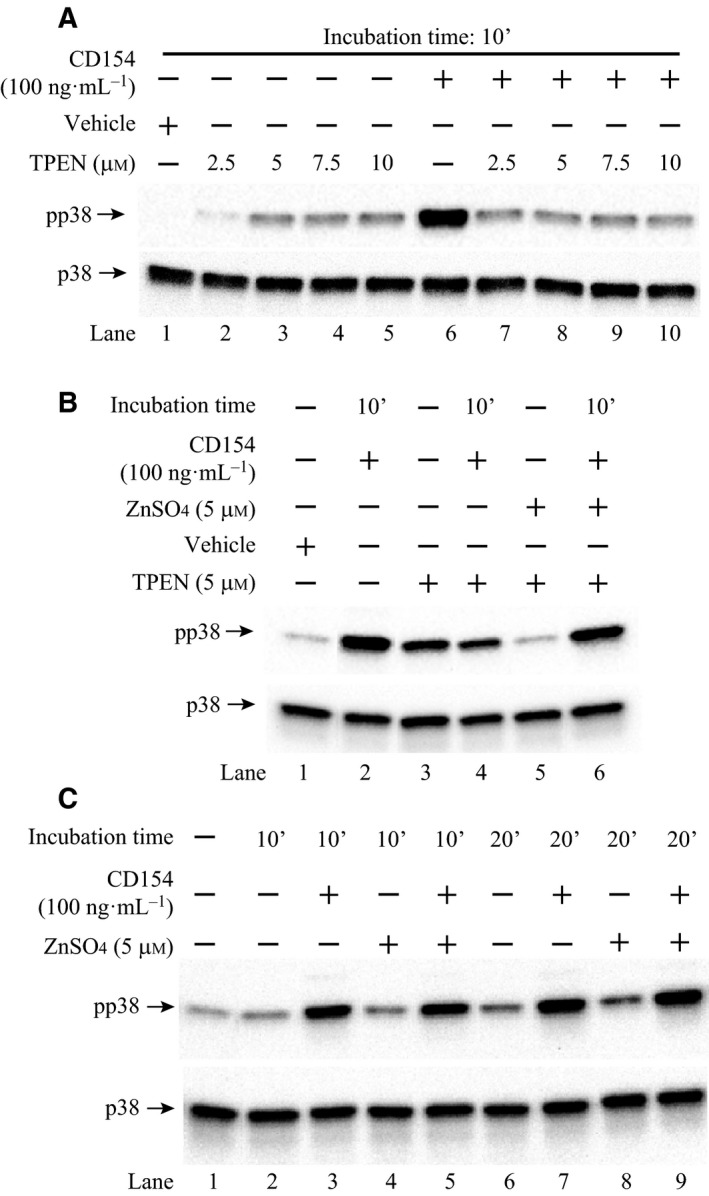Figure 1.

The effect of changes in cellular zinc concentrations on the p38 MAPK activity in Raji B lymphocytes. (A) Depletion of cellular zinc attenuated the p38 MAPK activity stimulated by CD154 in Raji B cells. Raji B cells were seeded into 6‐well plates at 3 × 106 in serum‐free RPMI 1640 media with TPEN at the indicated concentrations or vehicle at 37 °C for 2 h. Cells were then stimulated with CD154 at 37 °C for 10 min and lysed for western blot analysis. (B) TPEN‐induced reduction in the p38 MAPK activity was restored by zinc treatment in Raji B cells. Raji B cells were seeded into six‐well plates at 3 × 106 in serum‐free RPMI 1640 media with or without TPEN (5 μm). As indicated, ZnSO 4 was added into the medium at 5 μm to negate the TPEN function. The cells were incubated at 37 °C for 2 h. Cells were then stimulated with CD154 at 37 °C for 10 min and lysed for western blot analysis. (C) Zinc treatment increased the CD154‐stimulated p38 MAPK activity in Raji B cells. Raji B cells were seeded into six‐well plates at 3 × 106 in serum‐free RPMI 1640 media with or without ZnSO 4 at 5 μm. The cells were incubated at 37 °C for 2 h. Cells were then stimulated with CD154 at 37 °C for 10 or 20 min and lysed for western blot analysis. The phosphorylated p38 MAPK was detected by an anti‐phosphor‐p38 MAPK (Thr180/Tyr182) antibody and the total p38 MAPK was detected by an anti‐p38 MAPK antibody.
